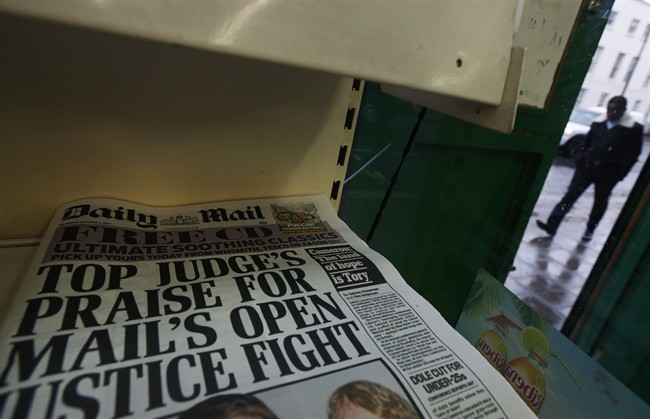Volunteer editors on Wikipedia will not be using British newspaper the Daily Mail as a source anymore.

The Daily Mail is a tabloid newspaper based in the United Kingdom, and its website is the most read online news site worldwide, CNN reports.
Officials with the Wikimedia Foundation, which supports Wikipedia, said in and email to Global News that the move is not a “blanket ban,” but editors have found the newspaper “generally unreliable and its use as a reference is to be generally prohibited, especially when other more reliable sources exist.”
So how did the Wikipedia website come to this decision?
Officials from the foundation said the discussion on the Daily Mail has been ongoing since 2015, but this recent decision stemmed from a January 2017 request for comment.
The main argument for the ban of the Daily Mail is its “reputation for poor fact checking, sensationalism, and flat-out fabrication.”

Get daily National news
READ MORE: Melania Trump files her dismissed lawsuit against the Daily Mail again
Examples included the sensationalized reporting and mis-reporting of the Amanda Knox trial.
In the discussion, people defended the Mail saying it was reliable for certain topics, but others argued it should be easy to find many alternate sources.
- Donald Trump claims B.C.’s ‘very large faucet’ could help California’s water woes
- Canada must speed up progress to hit its 2030 emissions target: report
- U.S. TikTok ban case pits free speech vs. national security. Which will win?
- A final, tragic text from doomed Titan sub revealed at Coast Guard hearing
Since the website is open source, it relies on its users to write in information on a variety of subjects, which can be proven by references to third-party websites.
Many of the references come from news organizations. But an essay on the site warning of unreliable sources has a list of exceptions that editors will need to treat carefully.
Those unreliable sources include state-sponsored news organizations like China’s Xinhua as well as politically biased news organizations.
READ MORE: Lego stops advertising in British newspaper Daily Mail
It also says tabloid newspapers should be used with caution, and previously listed the Daily Mail in that category.
It’s important to note that while editors won’t be sourcing the Daily Mail, it doesn’t fall into the website’s Fake News category, which it describes as deliberate “hoaxes, propaganda and disinformation purporting to be real news.”
The Daily Mail has not replied to a request for comment on the matter.








Comments